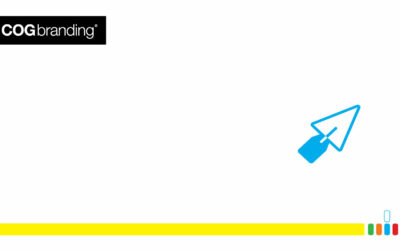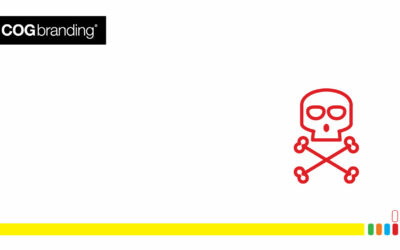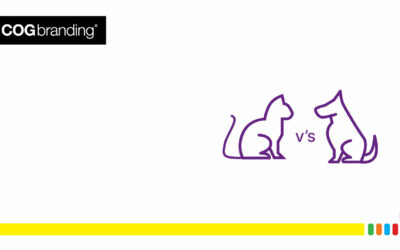How Apple’s iOS 14 Update Will Effect Your Small Australian Business.
Have you heard the big fuss about Apple’s iOS 14 update? Because small businesses will likely be impacted… Here’s everything we know so far.
Apple has announced changes to how Facebook will receive conversion events from the Facebook pixel on iOS14 devices. Any business that advertises on mobile apps, and anyone optimising, targeting or reporting on web conversion events can expect to see their business effected. This is a result of the release of Apples AppTracking Transparency Framework, which requires all apps in the App Store to show a permission prompt to users on iOS 14 devices when sharing information.
These big changes could dramatically affect advertiser’s ability to measure and monetise their advertising. How severely these changes will impact the Facebook Pixel with regards to in-app and onsite activity by shoppers is unclear, but there is potential for massive disruption as less user-data is passed back to Facebook.
What you need to know about the update
To truly understand how Facebook advertising and small businesses will be affected, you need to understand exactly what will be changed with the iOS 14 update. We’ve summarised the three main changes that are on the way.
Data Nutrition Label
The Data Nutrition Label will require all apps to submit how their application collects and uses data from its users. App owners and developers must upload this informational clause to the Apple App Store Connect.
Tracking Transparency Prompts
All applications using the Apple App store must now ask users for permission to track their data across third-party apps and websites. The tracking transparency prompt will appear to the user and give them the ability to accept or decline the tracking of their data.
Tracking via App/Browser APIs
Facebook and other platforms will now be required to use and navigate a new framework that places restrictions and report delays. The previously instantaneous reporting for App Conversion Campaigns could now be delayed up to three days with the newly adopted SKAdNetwork API (SKAN API).
How the iOS 14 update will affect your business’ digital marketing
If Facebook’s announcement about seeing Audience Network revenue cut in half is any indication, the update is likely to have a colossal impact across advertising on the open web. Indeed, if we take the conservative view that 50% of mobile users have iOS & 50% have Android, the announcement indicates that Facebook believes there will be a complete loss of user-level targeting across the audience network for iOS.
The ramifications of these changes will be felt heavily by both web and app advertisers, and here are some general limitations to be aware of if you’re a Facebook or Instagram advertiser.
Ad Creation
In terms of ad creation limitations, there are a few key changes that businesses should understand. Firstly, Auction bidding is now the only available buying option when creating ads for devices on iOS14. Therefore, reach and frequency bidding is no longer available.
Delayed Reporting
The new iOS 14 update will restrict advertisers’ ability to measure the performance of Facebook campaigns. The useful real-time reporting will no longer be supported and businesses could see a data delay of up to three days. Results will be aggregated at the campaign level and statistical modelling may be used to account for results/conversions at the ad set and ad levels.
Targeting
The size of app connections and Custom Audiences for both app and web activity will decrease as more people opt-out of tracking on iOS 14 devices. This means that advertisers may want to consider broadening their audiences to capture the attention of potential customers.
Facebook Aggregated Event Management (AEM)
Facebook will be implementing AEM to comply with Apple’s prompt. AEM limits the transmission of user data while still supporting critical advertiser use-cases.
8-Event Limitation
Your pixel will only track and optimise for a max of eight conversion events for each domain. Facebook will begin by configuring the conversion events they believe to be the most relevant to your business. All other events will be made inactive for campaign optimisation and reporting, and you will be able to manage your event priority preferences in Events Manager.
Any ad sets that are optimising for a pixel conversion event that is no longer active due to this eight-event limitation will be paused. Those who opt-out of the data tracking will only be recorded for one event completed after the ad click. This means that only customers that make it to one of your predetermined conversion events on the first ad click will be recorded.
To accomodate this new system, Facebook suggests setting up your eight conversion events to track the potential customer at key stages of their purchase journey. For example, if a customer visits your website and adds items to their cart, but does not end up making the purchase, you will want a conversion event for both the Add to Cart event and the Purchase event. Without the Add to Cart event, the data from that customer will not be tracked unless they complete a purchase on the first ad click.
To still make the most out of event tracking, you may want to consider changing your campaign measurement strategy by focusing on more upper-funnel event actions, such as landing page views, link clicks, etc.
Attribution and Conversion Windows
Due to limitations of the view-through signal, the default attribution setting for new campaigns after the prompt is enforced will be set to seven-day click and one-day view. Facebook will no longer support 28-day click, 28-day view, and seven-day view conversion windows. In the event where there is limited data available from iOS 14 users, statistical modelling will be used for certain attribution windows.
Conversion Event Breakdowns
Advertisers used to able to break down conversion actions for valuable insight into consumer behaviour. By accepting Apple’s new prompt, Facebook will no longer be able to show breakdowns for reported conversions. This includes delivery and action breakdowns, such as age, gender, religion, and placement.
Restricted Campaign Management
If you plan on running app install campaigns, you’ll need to ensure your app is associated with only one ad account. An ad account may house multiple apps, however, with the new iOS 14 update, you will only be permitted to run a max of nine campaigns at one time. Each of these campaigns must contain no more than five ad sets per campaign and auction will be the only buying type available. Once your campaign is published, you can’t turn on or turn off the iOS 14 campaign toggle, instead you’ll need to turn off or delete your campaign.
Lift Measurement – Aggregated
This will be unavailable for iOS14 App Install and App Event campaigns.
What does Facebook have to say about it?
Expectedly, Facebook are not happy with Apple’s changes and have let it be known, with newspaper ads in the United States stating the “average small business advertiser stands to see a cut of over 60% in sales for every dollar they spend” on ads. In an official blog post Facebook stated the policies are harmful to the ‘free internet’ and make some assertive statements regarding how it will impact small businesses, such as:
“They’re creating a policy — enforced via iOS 14’s AppTrackingTransparency — that’s about profit, not privacy. It will force businesses to turn to subscriptions and other in-app payments for revenue, meaning Apple will profit and many free services will have to start charging or exit the market.”
“They’re harming small businesses and publishers who are already struggling in a pandemic. These changes will directly impact their ability to use their advertising budgets efficiently and effectively. Our studies show, without personalised ads fuelled by their own data, small businesses can expect a cut of over 60% of website sales from ads. We don’t anticipate the proposed iOS 14 changes to cause a full loss of personalisation but rather a move in that direction over the longer term.”
“They’re not playing by their own rules. Apple’s own personalised ad platform isn’t effected by the new iOS 14 policy.”
“We strongly disagree with Apple’s approach, however we have no choice but to show their prompt. If we don’t, we’ll face retaliation from Apple, which could only further harm the businesses we want to support. We simply can’t take that risk.”
With data being the world’s most valuable commodity in today’s society, the impacts of social media and the commercial opportunities data presents, we anticipate this event to form a start in the shifting perspective away from automatic opt in to optional opt out first with regards to data sharing, bringing with it commercial dilemmas for advertisers and opportunities for the agile competitor.
Things you can do to prepare as a small business:
1. Verify your domain ownership in Business Manager. This will enable you to have authority over which conversion events are eligible for your domain.
2. Return on Ad Investment (ROAs) will probably appear lower and simply looking at yesterday’s data when assessing performance may not be practical. Instead you may need a 3 day window.
3. While this is not flagged or responded to by Google, we expect this iOS change to impact Google Ads also, so prepare for that.
We expect a massive shift in strategy by advertisers to compensate for the potential loss in revenue, though we are sure Facebook will be attempting to minimise these impacts as best they can.
In conclusion
With the Facebook auction system being driven by supply-and-demand, if performance dwindles, so does price. Less success results in less ad spend, and less ad spend results in lower CPMs, lower cost per acquisition and lower costs results in a platform that no longer provides meaningful scale.
If there was ever a time for advertisers to innovate, this is it!
If you’re fearing your survival as a small business, contact us now!
Be smart about this change and get on the forefront, we know we are…


